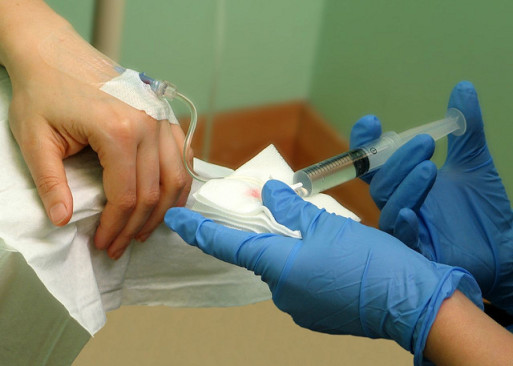Less than 10 years ago, my grandmother was on her death bed as late-stage lung cancer slowly consumed her. She had gone through months of painful chemotherapy, but the treatment only extended her life for a short time. In those months of intense treatment, she lost her appetite, her hair and some of her sanity. There were times when none of us were sure we made the right decision to treat her cancer. The moment she took her last breath, we were deeply hurt by her loss, but also relieved that she would no longer experience the pain of cancer and its harrowing treatment.
Every day, families affected by cancer have a difficult decision to make: whether to try an aggressive chemotherapy treatment for late-stage cancer, or to forgo treatment in favor of quality time and comfort.
Researchers have come one step closer to the best answer for late-stage cancer patients. A recent study has shown that patients who opt out of chemotherapy after being given six months or less to live were more likely to experience a higher quality of life before they died than those who elected a chemotherapy program.
Many of the patients in the group had painful initial symptoms when they were first diagnosed, and chemotherapy neither increased nor decreased these symptoms.
The study looked at 312 late-stage cancer patients, and found that 56 percent of the patients who chose to have chemotherapy experienced a low quality of life before they died. Comparatively, only 31 percent of patients who chose not to have chemotherapy reported similarly poor results. Many of the patients in the group had painful initial symptoms when they were first diagnosed, and chemotherapy neither increased nor decreased these symptoms.
What this shows is that, for patients who had few initial symptoms when they were diagnosed, chemotherapy often does more harm than good. Not only does this treatment typically extend the average patient’s life by only a few weeks or months, depending on their prognosis, its side effects are also traumatizing for patients and their families.
Doctors still caution patients not to take studies like this too strongly to heart. A patient’s decision to undergo chemotherapy is deeply personal, and depends on whether quality or quantity of life is more important.
Doctors still caution patients not to take studies like this too strongly to heart. A patient’s decision to undergo chemotherapy is deeply personal, and depends on whether quality or quantity of life is more important. Patients who want to be comfortable and at-peace in their final days might opt out of treatment, even if it means giving up a few weeks of life. On the opposite end of the spectrum, patients who want to live as long as they can to witness a special moment (like a birthday or a wedding) might choose chemotherapy, knowing that the side effects will likely hurt.
Both doctors and patients are taught that treating an illness aggressively is the only way to ensure peace at the end of life. As long as both doctor and patient have done all that they can to fight back, then both can rest easily.
Speaking as someone who has witnessed the deaths of two loved ones from cancer, this is a seductive thought. We want to do all that we can for our loved ones, and we sleep better each night knowing that our loved ones are receiving the best medical technology available. Yet when this technology causes our loved ones pain for relatively little time gained, is it really worth it?
If I could do it over again, I don’t think I would have encouraged my grandmother to go through chemotherapy. It gave us a few more precious weeks with her, but I also witnessed countless more weeks of her withering away under the force of that expensive chemical cocktail. It’s difficult to say that I would have chosen to give up that time with her, but if it meant that she would have felt happier and more comfortable in those final months, it would have been more than worth it to me.
As palliative care and our culture surrounding death changes, so will our treatment choices for late-stage cancer. Studies like this show that chemotherapy is a vital treatment for some patients, but that for people who want to enjoy life until the end, treatment isn’t always the best option.

 Is Chemotherapy Worth It for Late-Stage Cancer Patients?
Is Chemotherapy Worth It for Late-Stage Cancer Patients?




 The Spiritual Symbolism of Cardinals
The Spiritual Symbolism of Cardinals
 Meaning-Focused Grief Therapy: Imaginal Dialogues with the Deceased
Meaning-Focused Grief Therapy: Imaginal Dialogues with the Deceased
















Hi Marissa. I’m so glad that you bring up the trade-offs between aggressive end-of-life treatments and the sometimes negative consequences to quality of life to the patient and their families. Perhaps if we had a stronger culture of embracing hospice care we’d all get to enjoy a little more with our loved ones that we would treasure? Here’s a relevant article on some of the benefits and experiences people would get from hospice care.
Report this comment